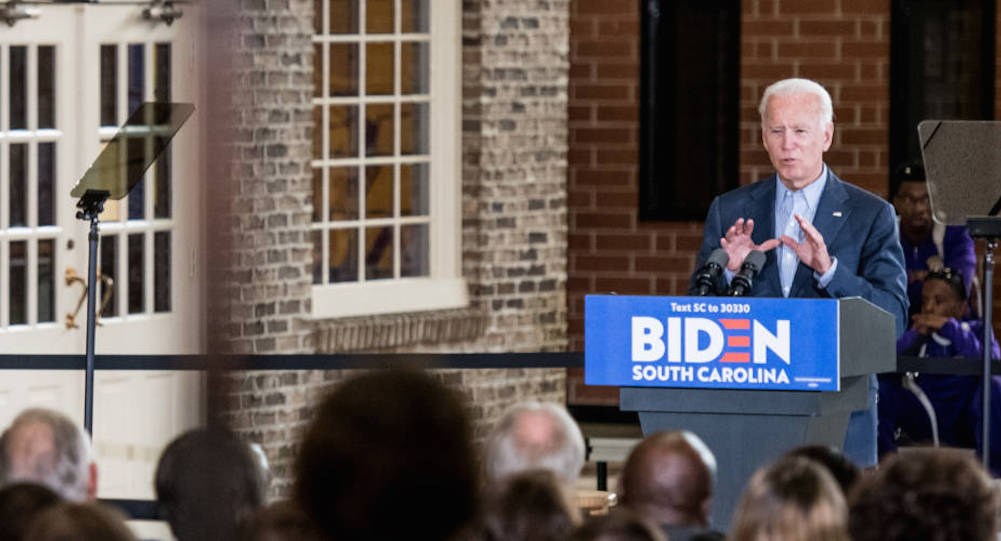The US media is in danger. Most urgently, it is in danger of dislocating its collective shoulder in its rush to pat itself on the back for its handling of the 2020 election.
Already we have had multiple stories celebrating the fact that, in the days since Donald Trump was safely declared the loser of the election, cable news has cut away from press conferences in which Trump or his officials tell outright lies with accusations of fraud. Print and digital outlets have been credited for adding “without foundation” or similar to their headlines or stories on the topic.
Some of us even seem ready for a return to some form of “normalcy.” TJ Ducklo, the Biden campaign press secretary, commented on Meet The Press, “President-elect Biden believes that the media is a critical part of our democracy…you’ll see a huge change in the culture and the way that this White House treats the media.” It’s as if the last four years simply did not happen.
And yet, amid a choir of hallelujahs comes an off-note: a sizeable chunk of the American public simply does not believe any of this. According to Pew research shortly before the election, only nine percent of the American public have “a great deal” of trust that journalists act in the public interest. Among Republicans, two-thirds ascribe deliberate malicious intent. A third of Democrats feel the same. America is more united than we think—at least in despising journalists.
The media’s solution seems to be to blame our audience for failing to see the utility of our work. Indeed, the chyron of a CNN segment on the Monday after the election stated “TRUMP SUPPORTERS PARROT BASELESS CLAIMS ABOUT ELECTION FRAUD” without concerning itself with what the supporters were parroting and why.
I understand the temptation in both triumphalism and blaming our audience. Reporters have worked hard these four years, and their outlets have put serious time, energy, and resources into battling a toxic information economy.
News organizations have performed tens of thousands of fact checks of Trump, his officials, and elected representatives of both parties. They have hired specialist online misinformation reporters, explaining to mainstream audiences how images can be manipulated, old social media posts faked, of the dangers of “bot” armies and hacking, and even of next-generation risks such as deepfakes. The specter of foreign interference, especially from Russia, has been constant.
Much of this work has been world-class, produced by journalists at the top of their trade. And all of it has failed. Because it is built on a foundation of mistrust, all it has done is has taught people how to pick holes in the arguments of their opponents, to question their motivations, or even—in the case of social media bots—their very existence.
The result is a maelstrom of mutual distrust. This might be most apparent in the attitude of Trump’s base towards mainstream journalists, but it permeates the entire political spectrum. Neither mistrust nor misinformation are problems of only one political group.
When President Trump was admitted to the hospital with covid-19, Carole Cadwalladr, a journalist who was shortlisted for a Pulitzer Prize for her work on Cambridge Analytica, tweeted a theory that hospital admission would help Trump in the polls. It went mega-viral and fueled its own baseless claims that the illness was faked.
It’s hard for us to admit, as we slump, exhausted, that we missed our moment to this extent. It’s easier to just move on as though nothing happened. But we will not restore trust in our work through regulation of social media, through fact-checks, or even through self-critical articles like this one.
For me the solution is simple: a return to the core of our profession, which is telling the world about itself through the medium of brave work conducted not for clicks or for political approval, but for the higher cause of honesty. Our work must be compelling and detailed, and based on reporting, not opinions or notions of campaigning.
It’s storytelling. Doing it well, which means reaching more people, is ground we can’t cede to the forces of chaos. And it’s the only way we can connect once more with those we’ve left behind.
James Ball James Ball is a journalist, author, and fellow of the UK-based think tank Demos. His latest book is The Other Pandemic: How QAnon Conquered The World.


